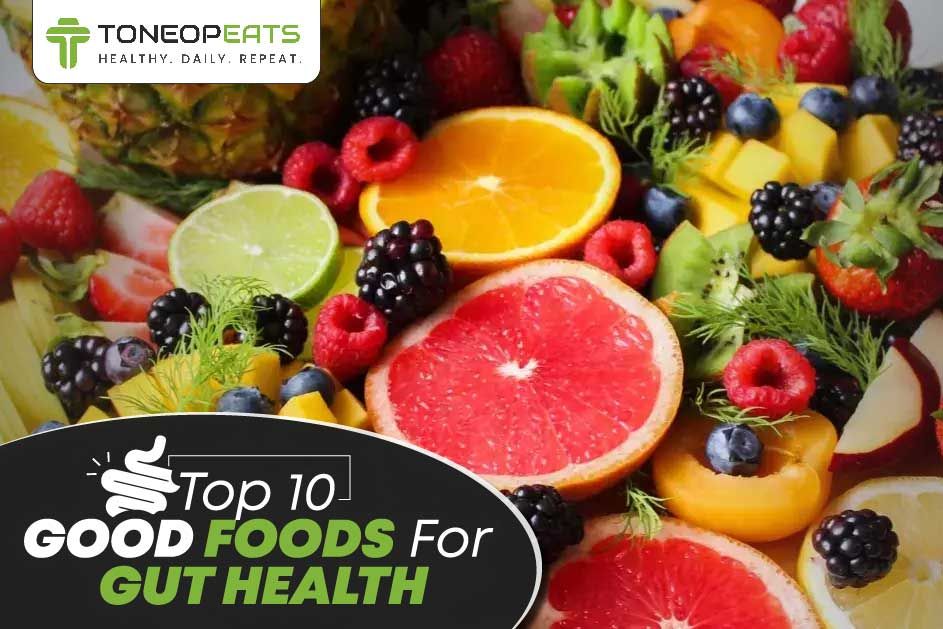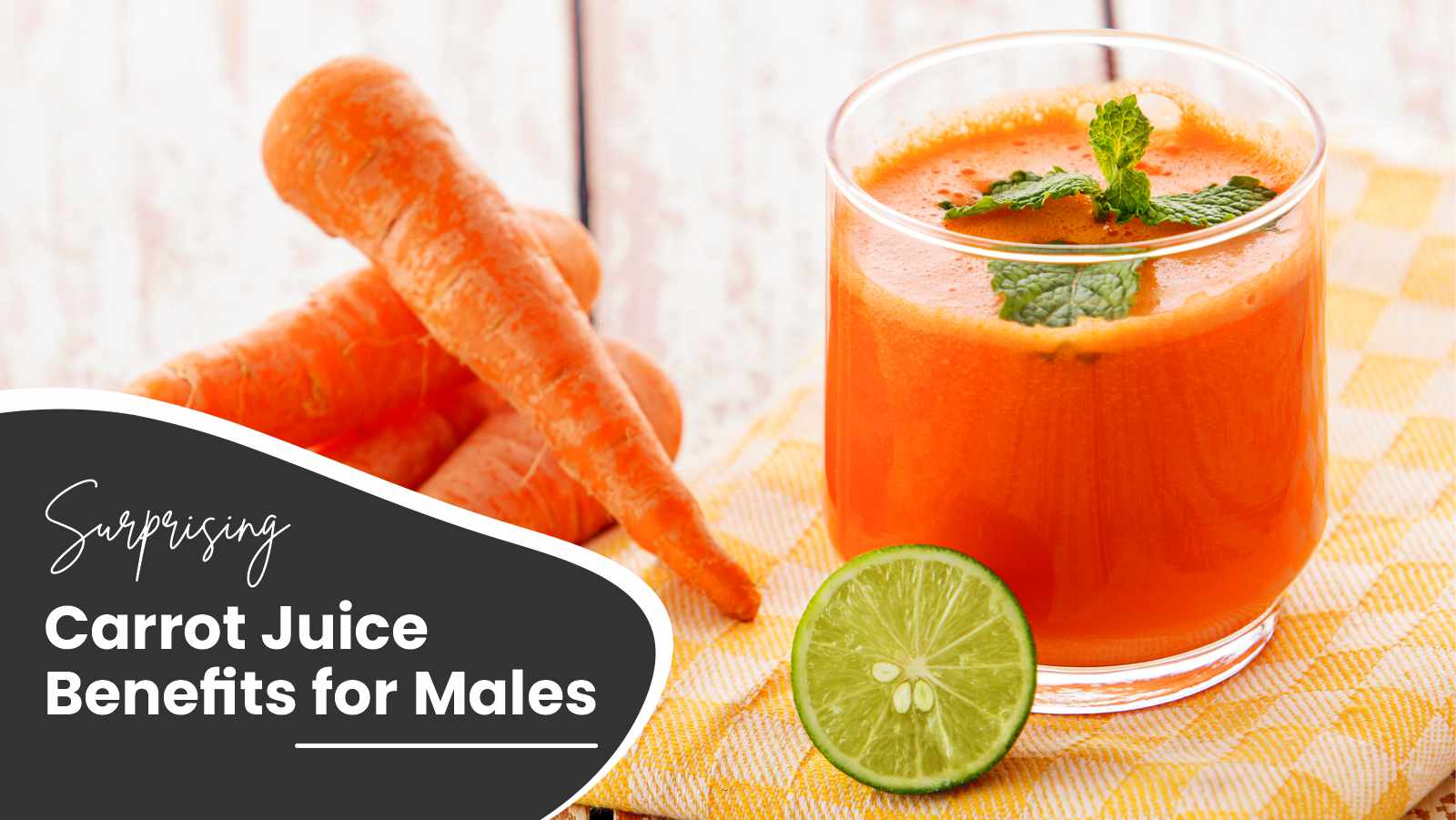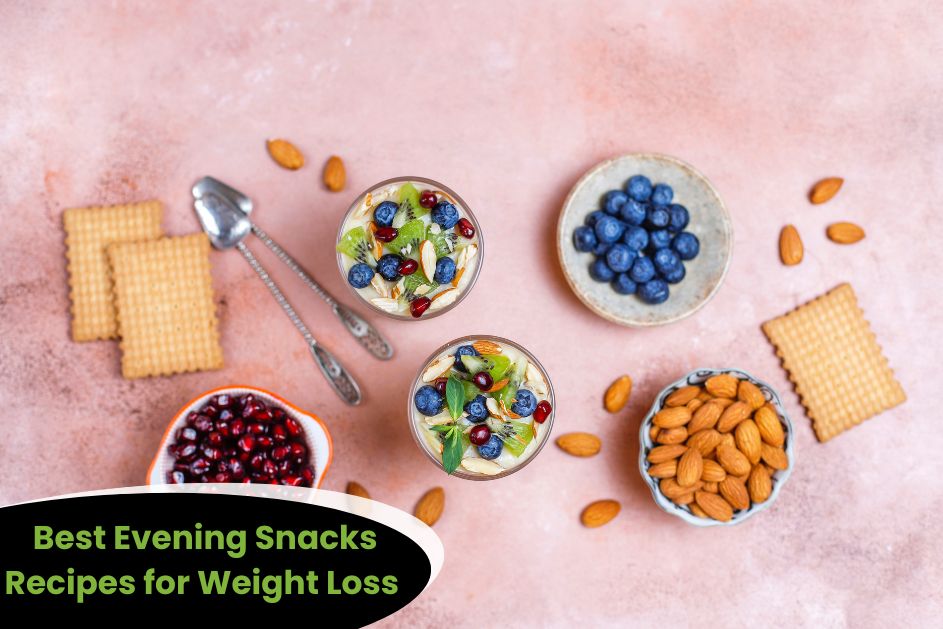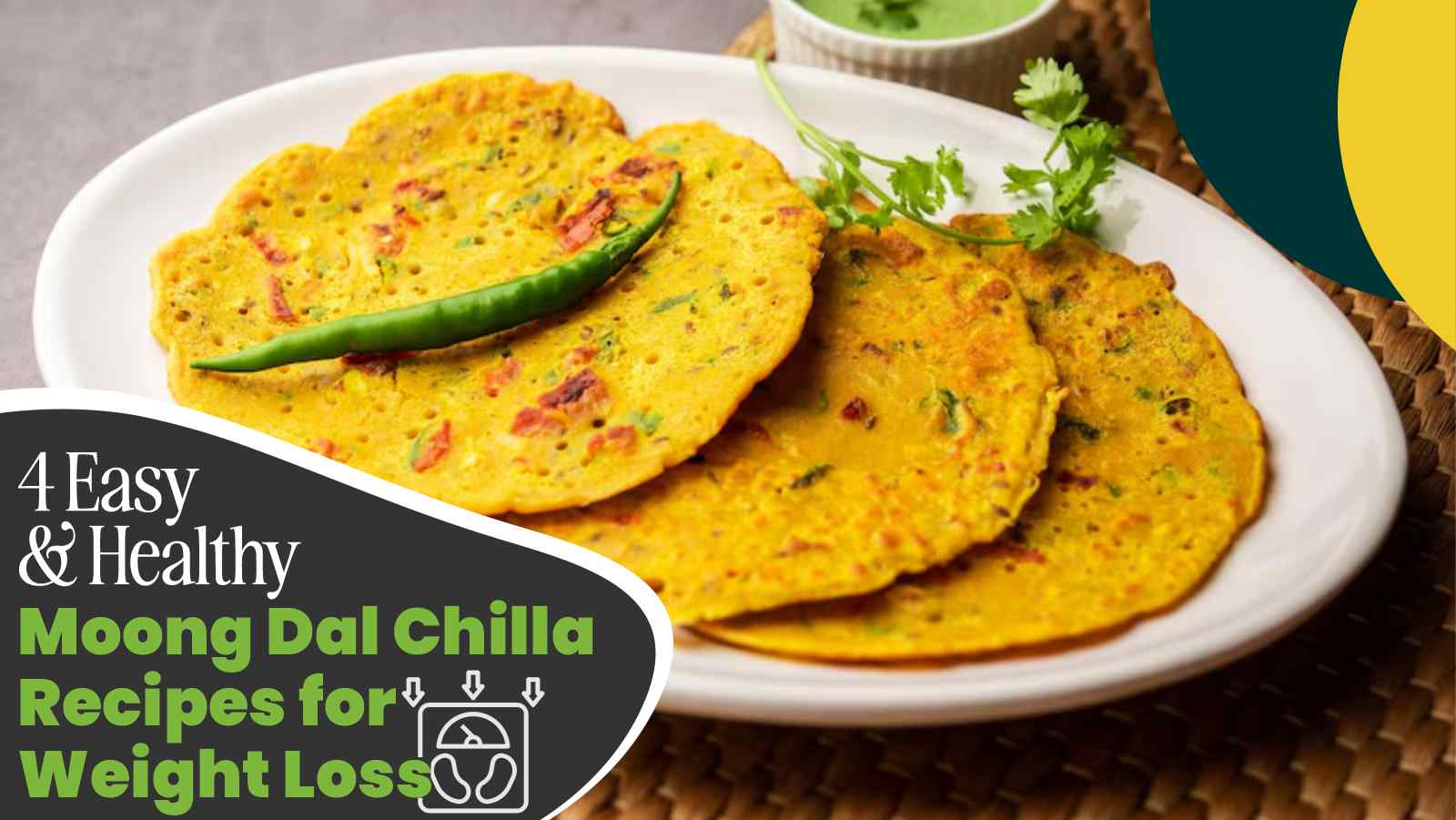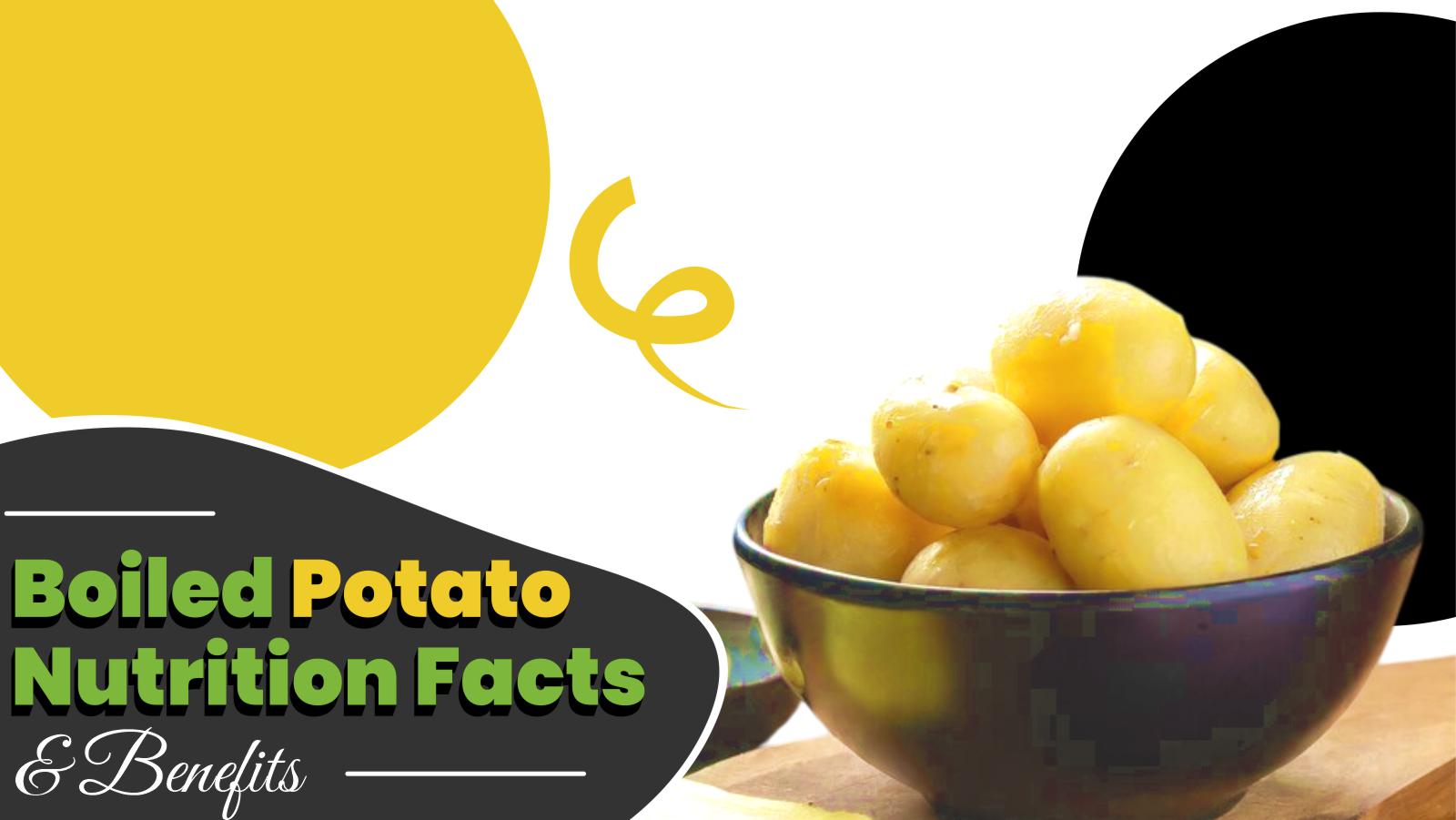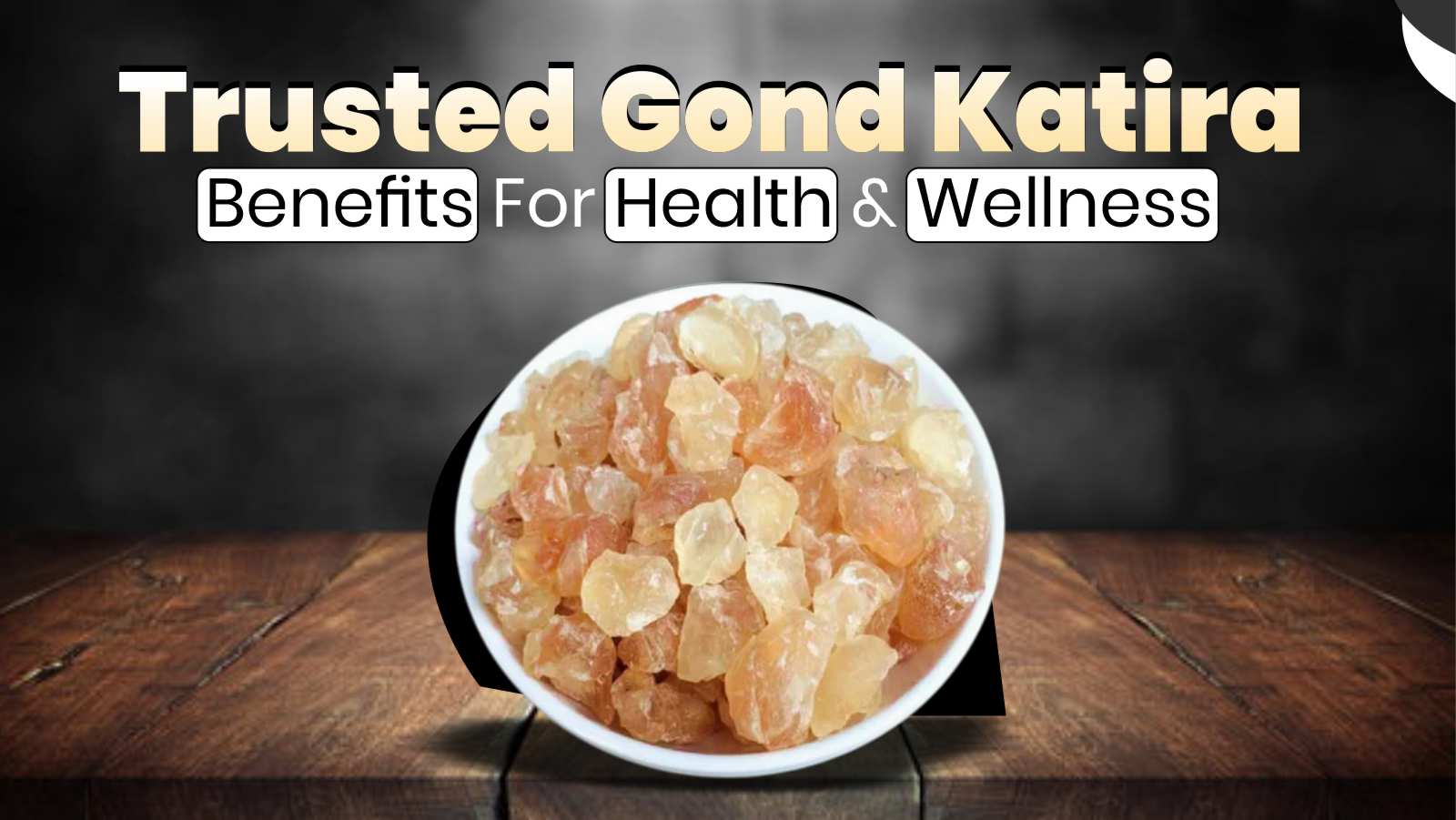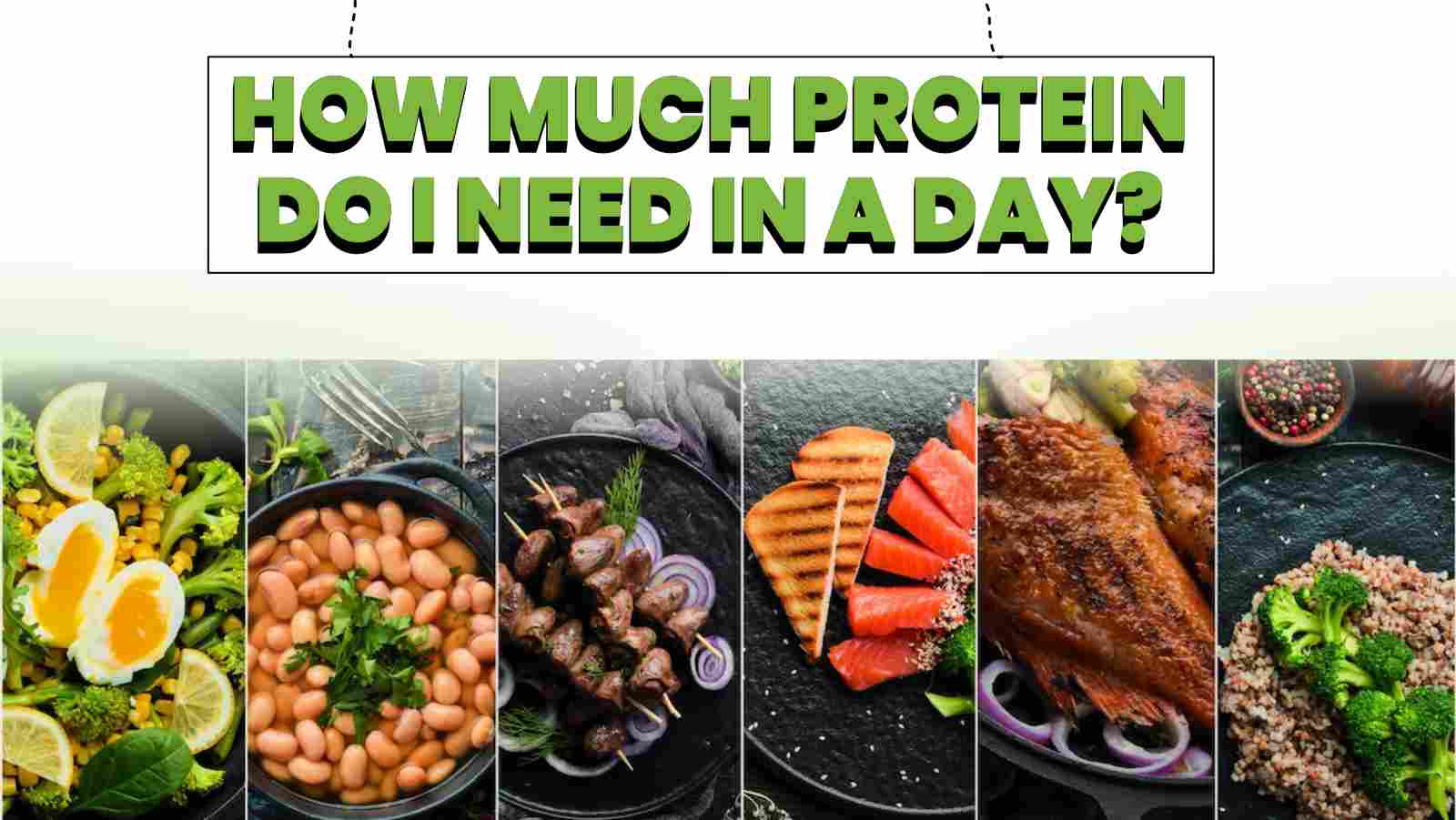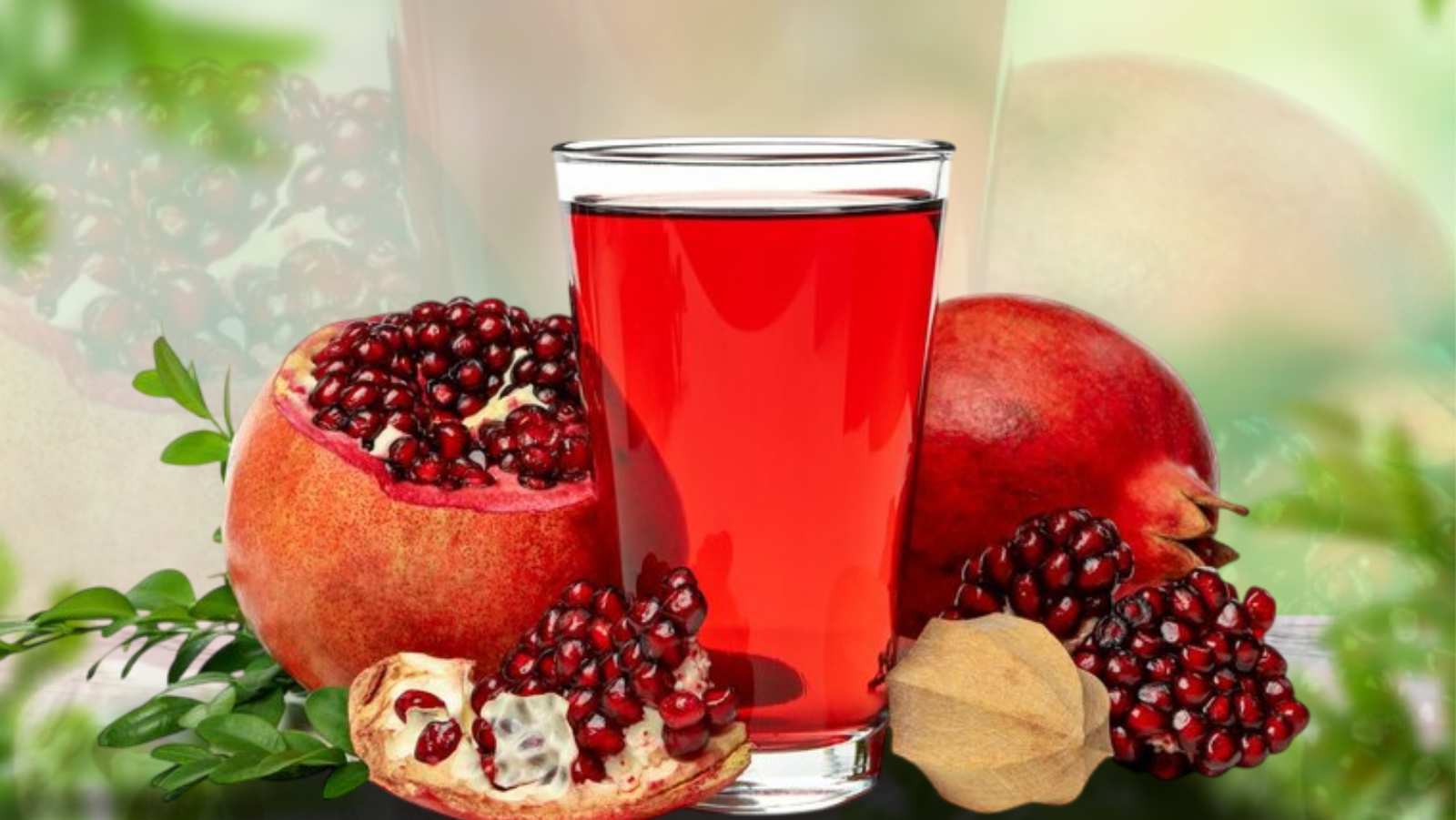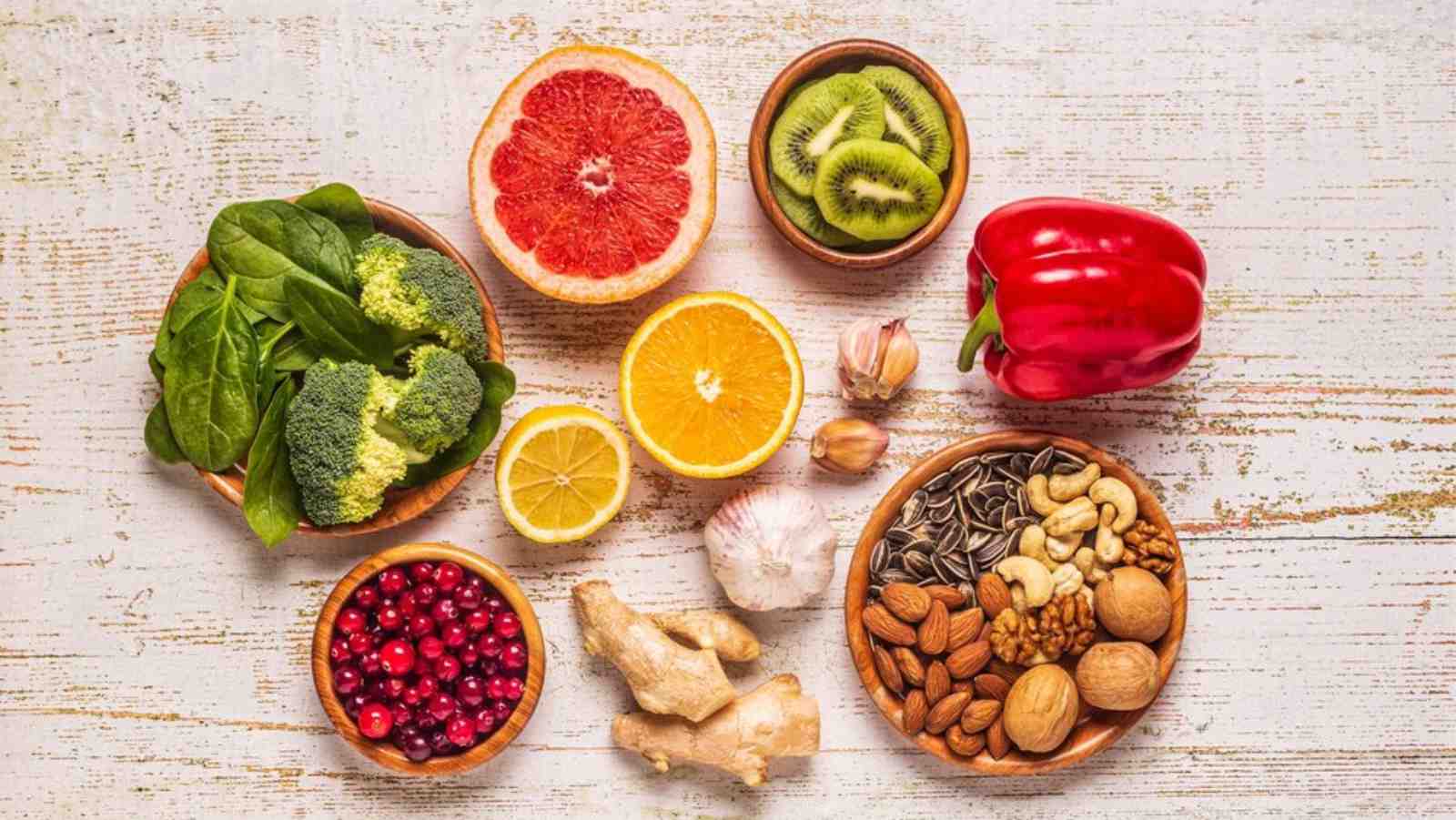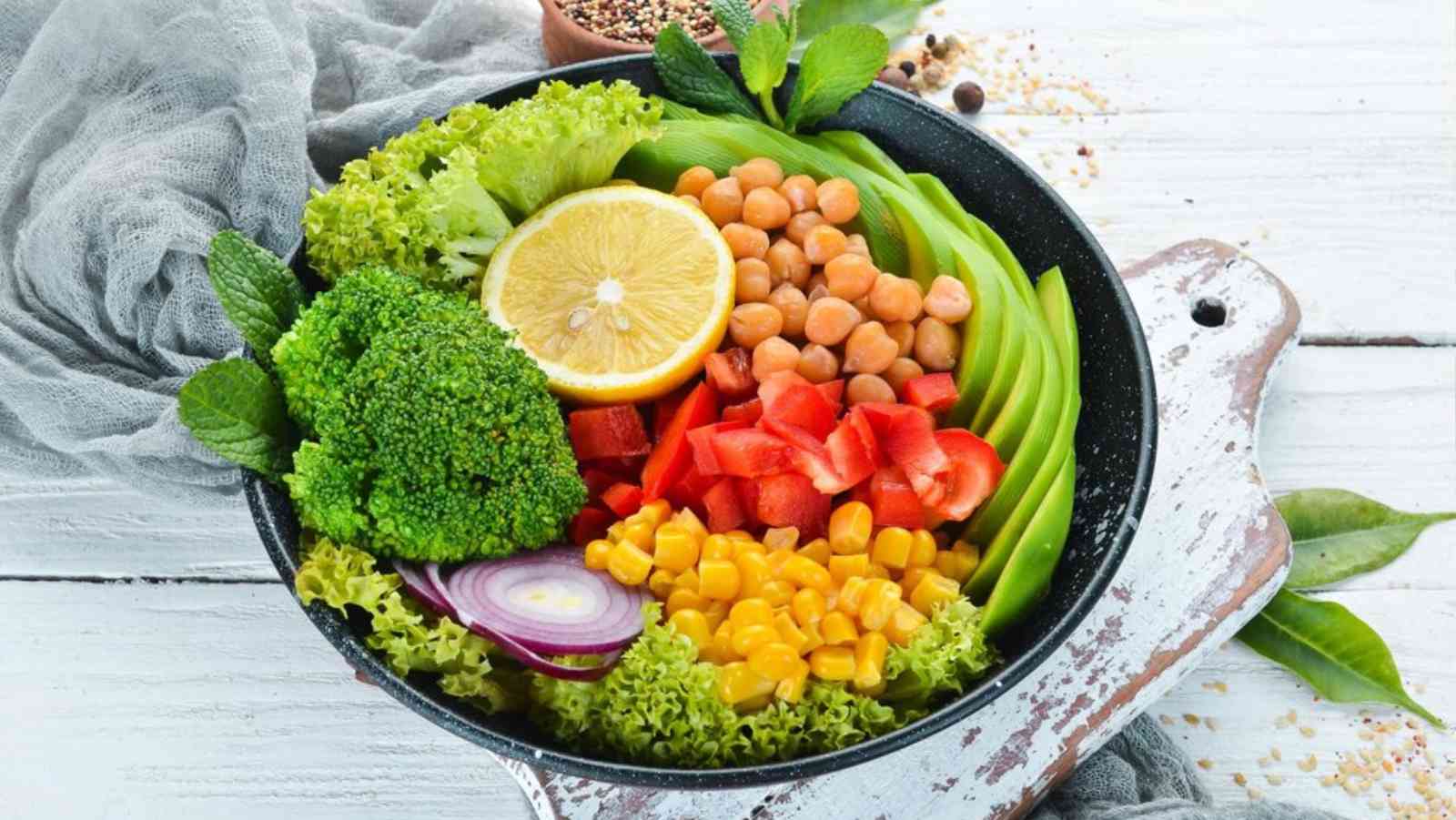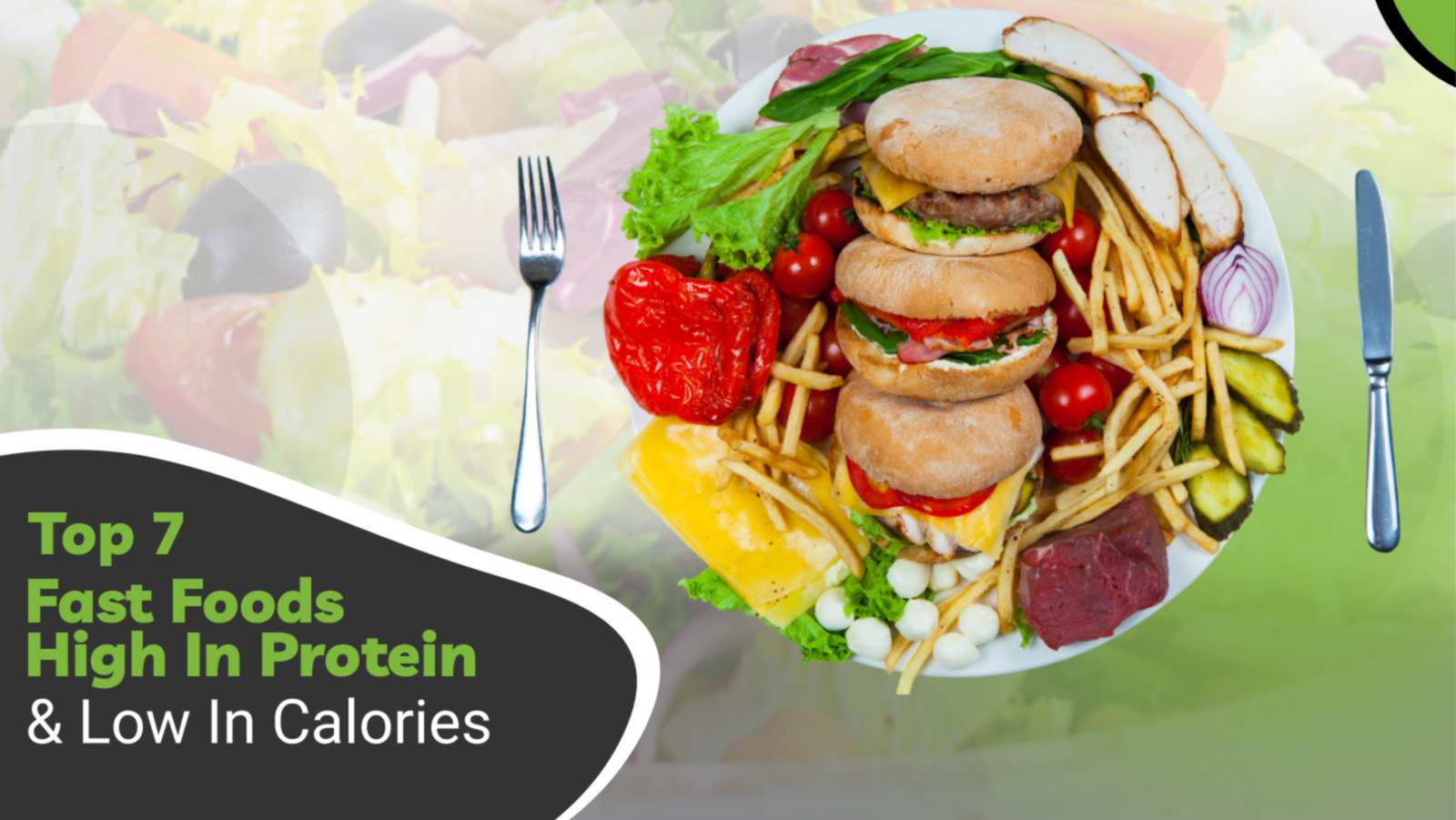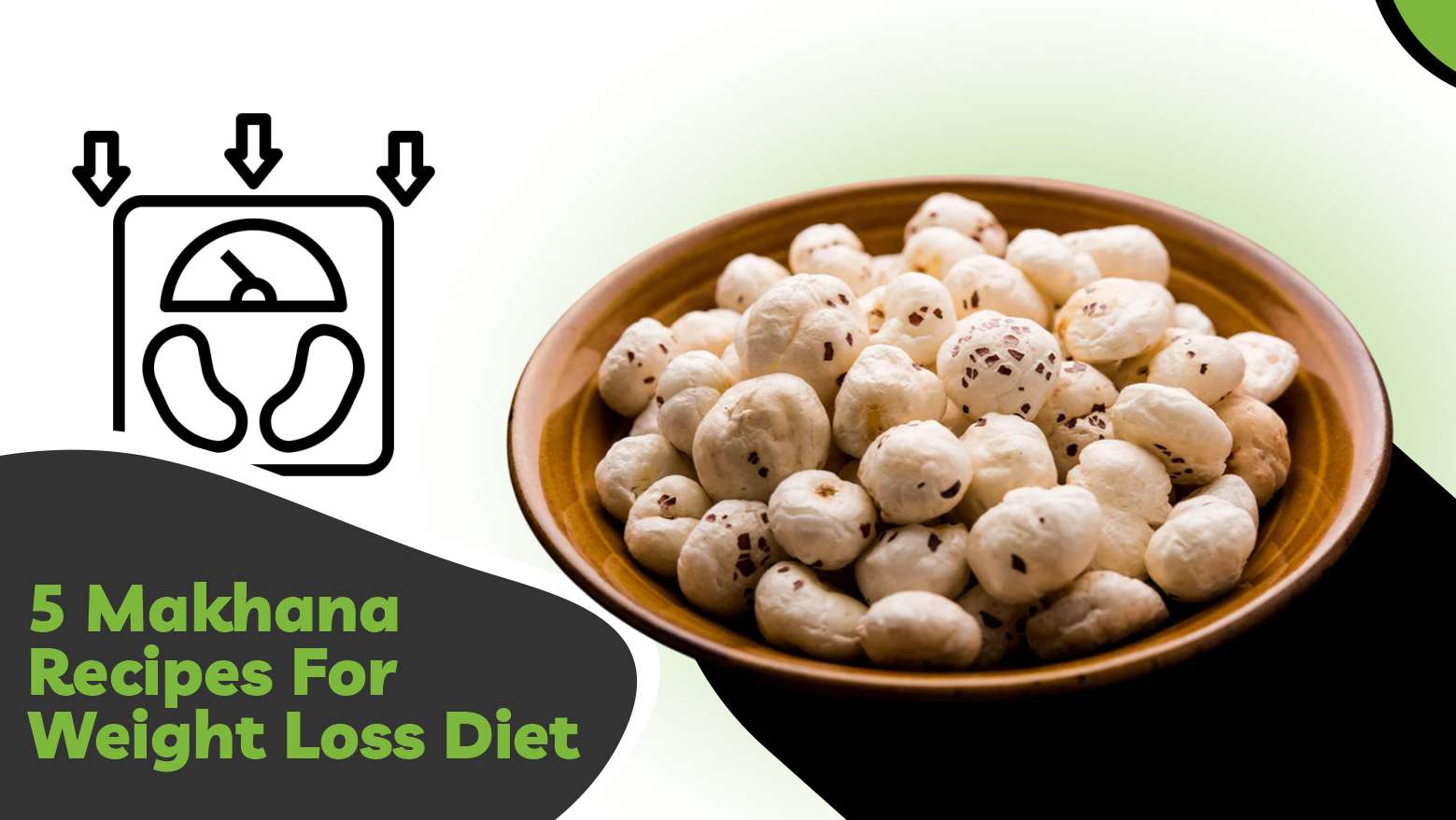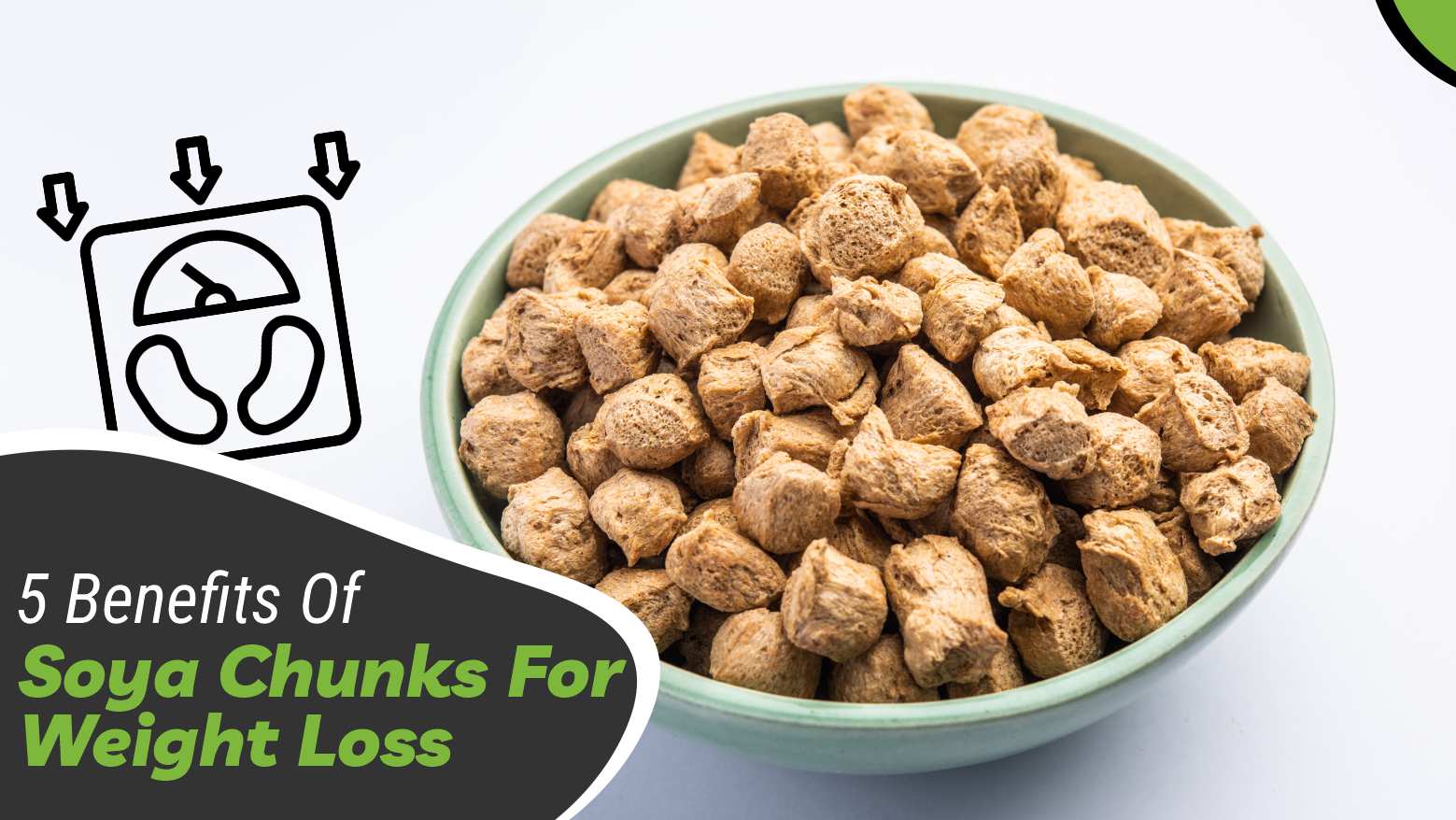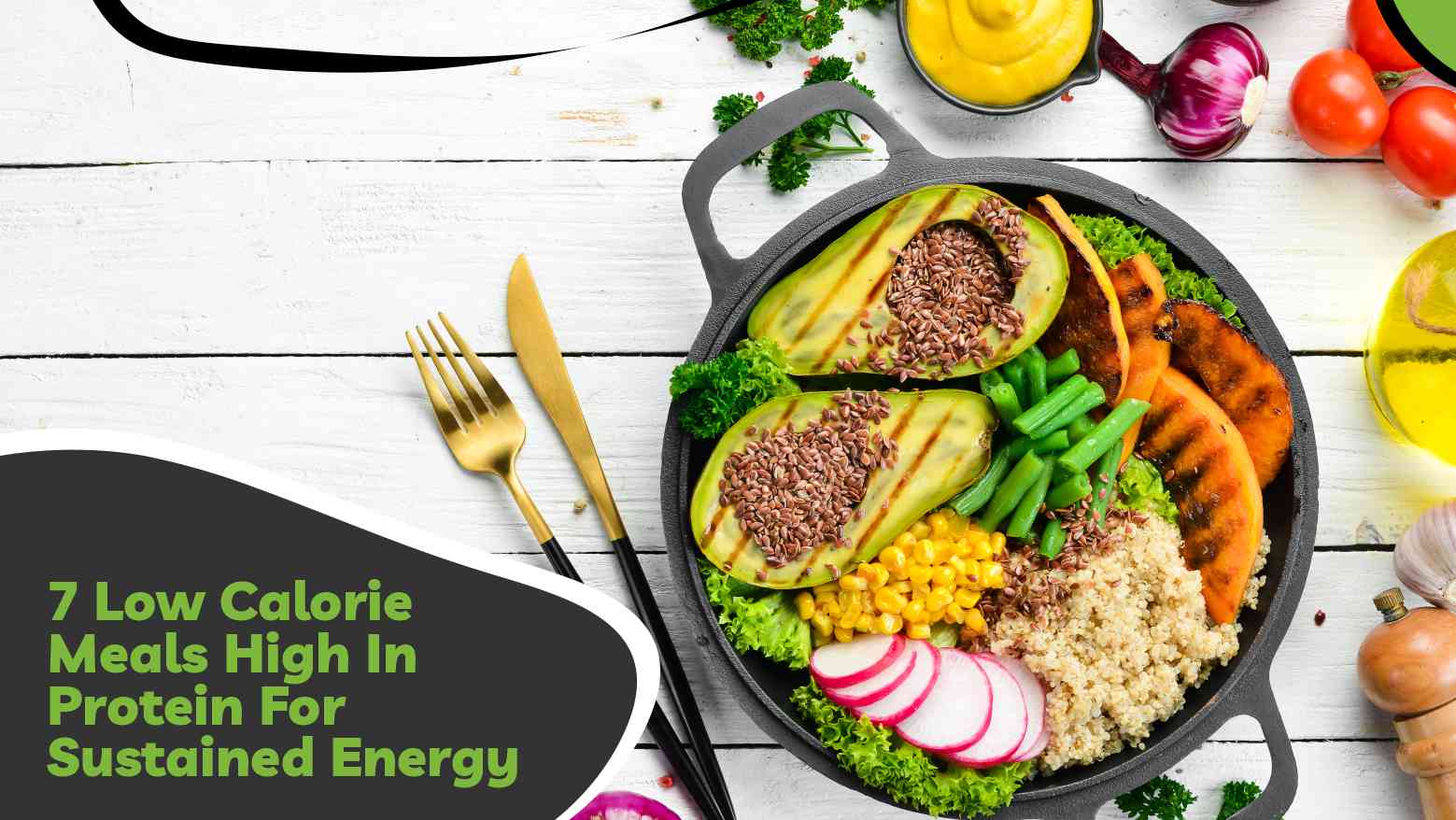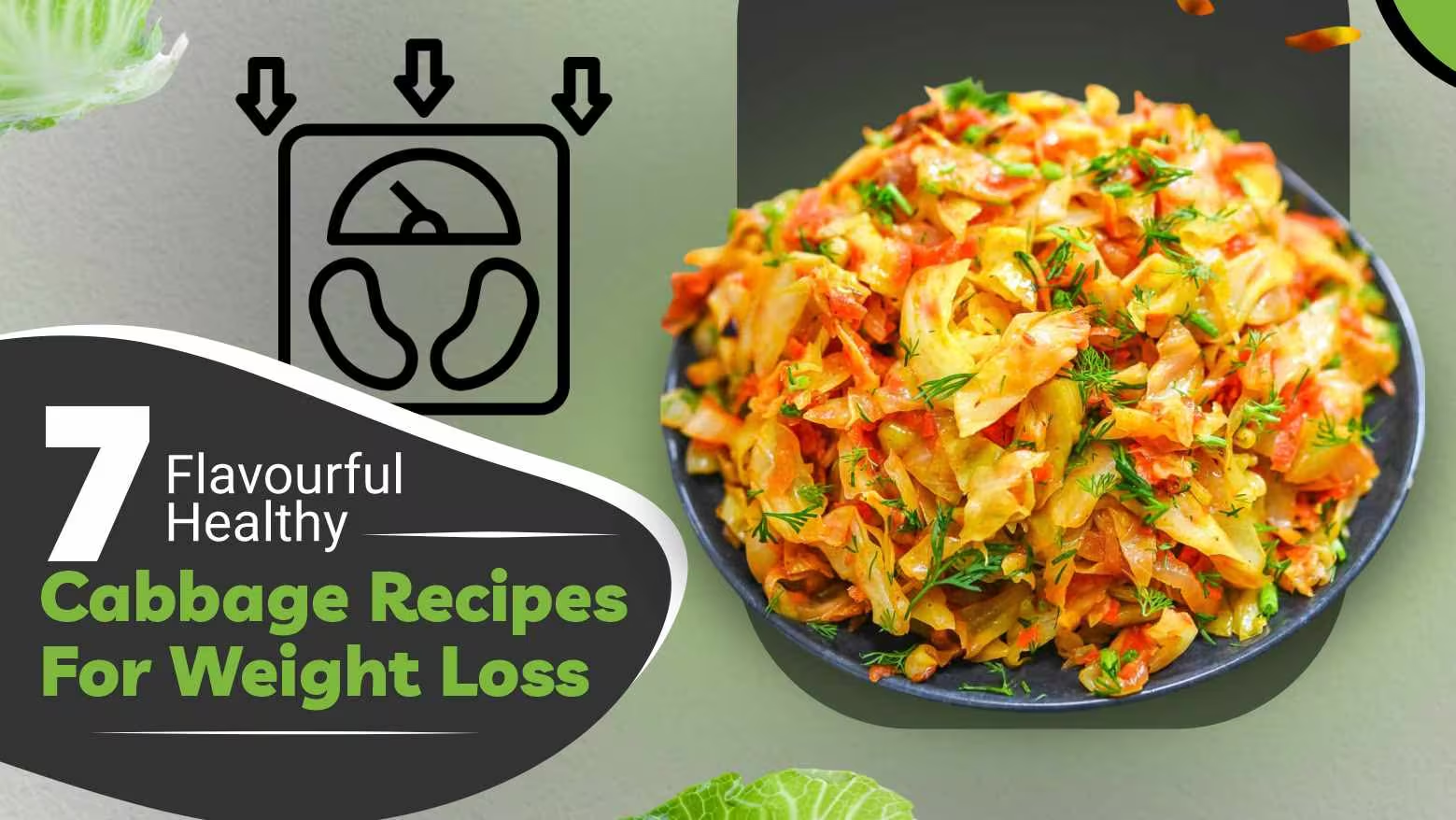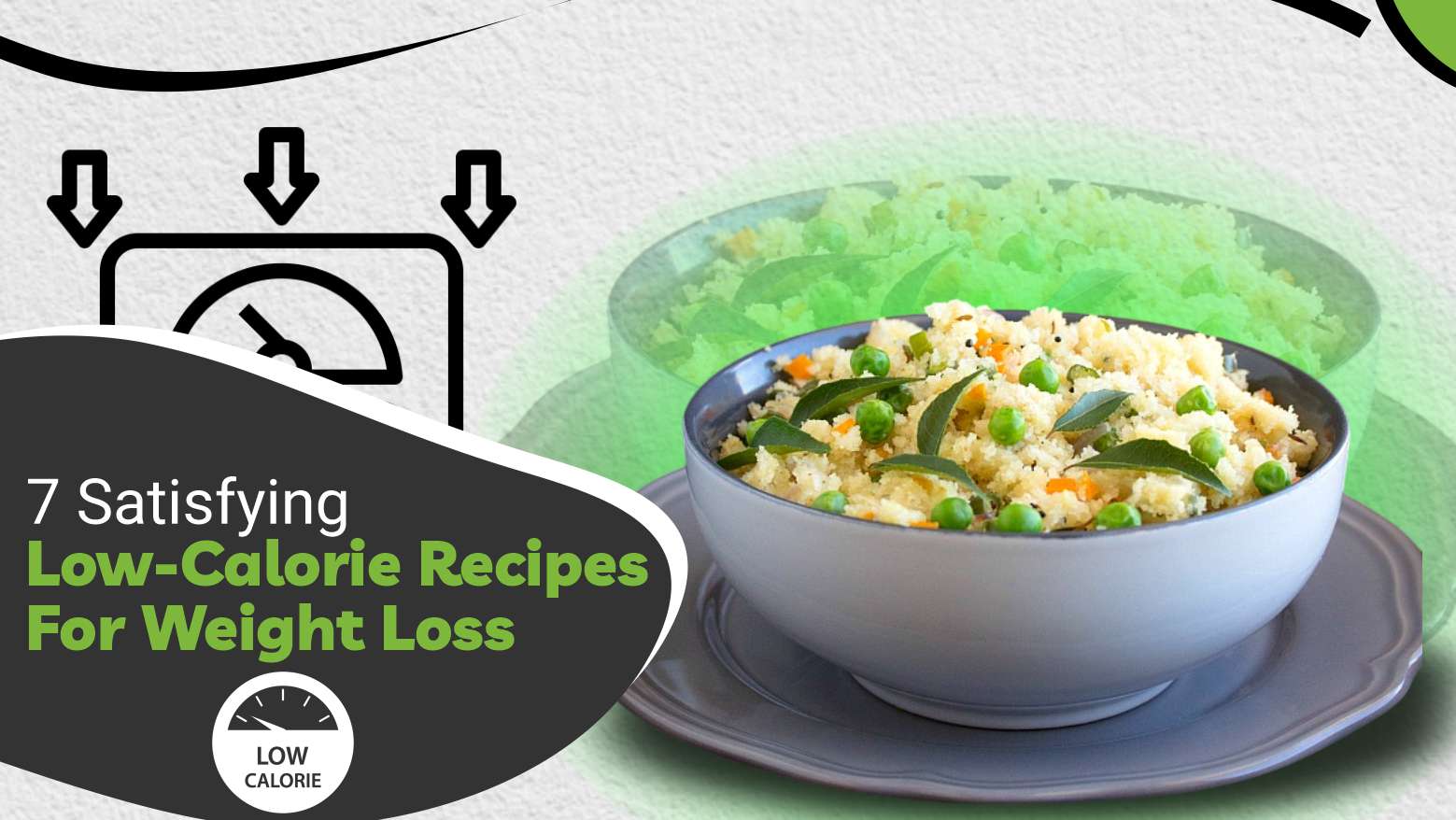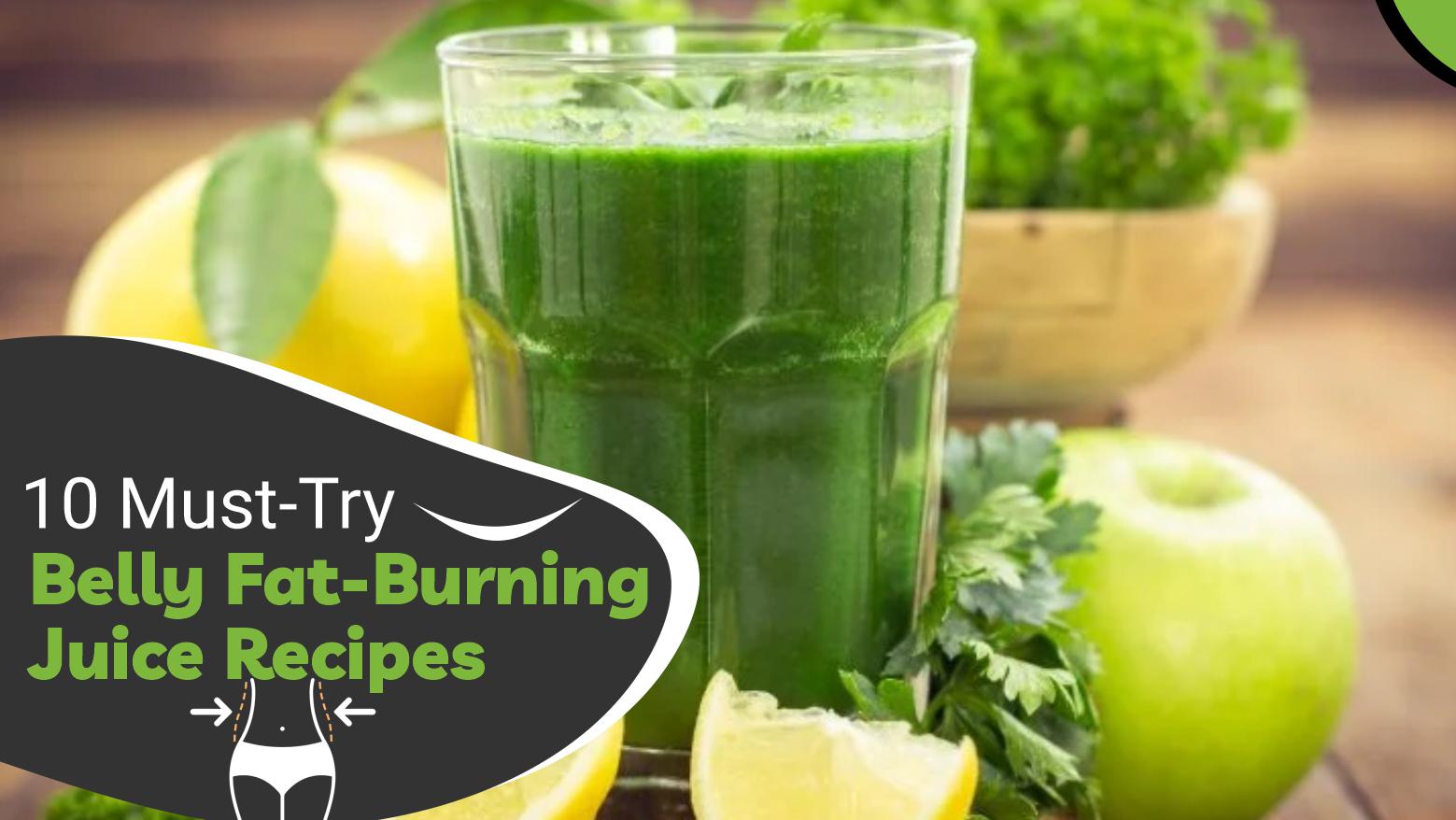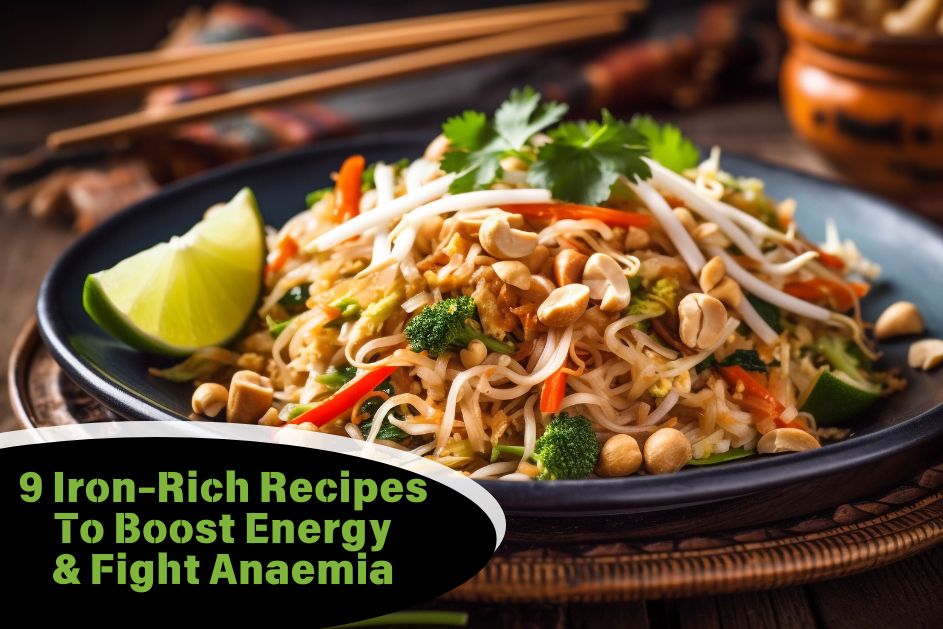Have you ever felt sluggish, bloated, fatigued or experienced digestive discomfort? These could be signs of an unhappy gut. Teeming with trillions of bacteria, your gut is a complex ecosystem responsible for healthy digestion, nutrient absorption, immunity, and overall wellness. An imbalance in this delicate gut environment causes many health issues, including but not limited to digestive problems, weakened immunity, fatigue, skin issues, and even mental health concerns. Fortunately, you can nourish your gut back to health by making mindful gut-friendly food choices.
This calls for healthy ways to prevent further complications, like including good food for gut health improvement and taking respective lifestyle measures to get relief. But what is the best food for gut health to ease your digestive tract? Let's discuss these top 10 foods for gut health and understand how they can transform your digestive health.
Table Of Contents
1. Top 10 Good Foods For Gut Health
2. What Foods Heal Your Gut? 5 Important Categories
3. What Is The 7-Day Gut Reset?
4. How Can I Improve My Gut Health?
5. The Final Say
6. FAQs
7. References
Top 10 Good Foods For Gut Health

Let’s discuss and understand these good foods for gut health to include the right preference in your regular meals for better health outcomes:
1. Whole Grains
Whole grains like oats, brown rice, and barley are rich in fibre, which helps in gut health by allowing regular bowel movements and preventing constipation. The fibre in whole grains acts as a prebiotic, feeding beneficial gut bacteria, which produce short-chain fatty acids (SCFAs) that help maintain the health of the gut lining.
Whole grains also include essential nutrients like B vitamins, magnesium, and iron, which support overall digestive health and energy production.
2. Green Leafy Vegetables
Green leafy vegetables, such as fresh spinach, kale, and Swiss chard, are packed with fibre, vitamins, and minerals that support gut health. These vegetables are rich in required folate, vitamin C portion, vitamin K, and magnesium, which help to nourish the gut lining and reduce inflammation.
Their high fibre content promotes the growth of healthy gut bacteria, aiding digestion and nutrient absorption. The chlorophyll in fresh green leafy vegetables also helps to detoxify the body, contributing to a healthier gut environment.
Also Read: How Is Prebiotic And Probiotic Different? Understand Their Uses For Digestion, Immunity & More!
3. Low Fructose Fruits
Low-fructose fruits like berries, oranges, and bananas are easier on the digestive system tract and less likely to cause bloating or discomfort than high-fructose fruits. These fruits are high in fibre, multivitamins, and antioxidants, which support gut health by reducing inflammation plus promoting the growth of beneficial gut bacteria.
The fibre in these fruits also helps to regulate bowel movements, ensuring a healthy digestive tract. Also, the vitamin C found in many low-fructose fruits helps in maintaining a strong immune system.
4. Lean Proteins
Lean proteins, such as chicken, fresh turkey, and tofu, are important for maintaining gut health as they are easier to digest plus less likely to cause excessive irritation or inflammation in the digestive tract. These proteins provide required amino acids that support the repair and regeneration of the inner and outer gut lining.
Lean proteins also help balance blood sugar levels, reducing cravings and promoting a healthier gut environment. Plus, they are a good source of vitamins and minerals like B vitamins, iron, and zinc, which are essential for overall health.
Also Read: What Is Lean Protein? Know 11 Foods, Sources, Benefits And Guidelines!
5. Yoghurt
Yoghurt is a well-known probiotic food, rich in good bacteria that can eventually help restore the natural balance of gut flora. These beneficial bacteria aid digestion, enhance nutrient absorption, and boost the immune system.
Yoghurt is also a good source of calcium and vitamin D, which support the overall health of the digestive tract. The probiotics in yoghurt can help reduce irritable bowel syndrome (IBS) symptoms and other digestive disorders, making it a favourable choice for maintaining a healthy gut.
6. Garlic
Garlic is a powerful prebiotic, rich in inulin, a fibre that feeds beneficial gut bacteria. By promoting healthy bacteria growth, garlic helps maintain a balanced gut microbiome, which is essential for overall digestive health.
Garlic also has anti-inflammatory plus required antimicrobial properties, which can help reduce harmful gut bacteria and prevent infections. Also, garlic is rich in antioxidants like selenium and vitamin C, which support the immune system and overall health.
7. Chia Seeds
Chia seeds are a great fibre source, particularly soluble fibre, which forms a gel-like structure in the digestive tract, helping to slow digestion and promote the growth of healthy gut bacteria.
The fibre in chia seeds aids in regular bowel movements, prevents constipation, and supports overall gut health. Chia seeds are also rich in omega-3 acids, which have anti-inflammatory compounds that can help reduce gut inflammation.
8. Miso
Miso, a traditional Japanese fermented soybean paste, is rich in probiotics that can enhance gut health by replenishing the good bacteria in the digestive system. These probiotics aid digestion, reduce inflammation, and help prevent gut-related illnesses.
Miso is also a good source of essential nutrients like vitamin K, manganese, and zinc, which support overall health and immune function.
Also Read: Refreshing 12 Best Healthy Lunchbox Ideas For Nutritious Meal Times!
9. Almonds
This nutritious snack supports gut health due to its high fibre, which acts as a prebiotic to nourish beneficial gut bacteria. The healthy fats in almonds, particularly monounsaturated fats, help to reduce inflammation in the gut and promote a healthy digestive system.
Almonds are also rich in vitamin E portion, an antioxidant that protects the gut lining from damage, and magnesium, which supports muscle function and regular bowel movements.
10. Brown Rice
This is rich in fibre, particularly insoluble fibre, which aids digestion and promotes smooth bowel movements. The fibre in brown rice also acts as a prebiotic, allowing the growth of healthy gut bacteria.
Brown rice is a good option of essential nutrients like magnesium, selenium, and B vitamins, which fosters a healthy digestive system. Its low glycemic index helps to stabilise blood sugar levels, reducing the risk of gut-related issues such as bloating and discomfort.
Also Read: 15 Best Foods For Height Growth During Your Developmental Years!
What Foods Heal Your Gut? 5 Important Categories
Diet and gut health are deeply interconnected. A nutritious diet rich in natural, whole foods can support a healthy gut microbiome, while processed foods, high-fat foods, and those high in refined sugars can disrupt it. These unhealthy foods can foster the growth of harmful bacteria, causing an imbalance in the gut. Meanwhile, consuming foods that nourish and support beneficial bacteria can enhance gut health and improve overall well-being.
Consider these foods that can help heal and maintain a healthy gut.
1. Fruits And Vegetables
These fruits and vegetables are full of essential nutrients, fibre, and antioxidants that support gut health. The fibre in these foods acts as a prebiotic, feeding the good stomach bacteria in your gut and promoting their growth.
For example, bananas and apples contain pectin, a fibre that helps keep a healthy gut lining. Leafy greens like fresh spinach and kale are also fibre-rich and promote beneficial gut bacteria growth.
2. Nuts And Legumes
These are excellent sources of fibre, healthy fats, and plant-based protein, contributing to gut health. Almonds and pistachios, in particular, are rich in fibre that acts as a prebiotic, feeding beneficial gut bacteria.
Legumes, such as black beans and chickpeas, are also high in fibre and help promote regular bowel movements. The healthy fats in nuts, like omega-3 fatty acids, have anti-inflammatory compounds that support a healthy gut lining.
Also Read: Here Are 10 Wholesome & Healthy Snacks For Kids To Enjoy Any Time!
3. High Fibre Foods
High-fibre foods are crucial for gut health as they help regulate bowel movements and support the growth of beneficial bacteria.
- Legumes, such as lentils and black beans, are rich in soluble and insoluble fibre, which promotes digestive regularity and feeds good gut bacteria.
- Whole grains like oats and quality quinoa provide a steady source of fibre that supports the gut microbiome.
- Vegetables like broccoli and asparagus are high in fibre and contain nutrients that reduce inflammation in the gut.
- Fruits like apples and peaches are also fibre-rich, helping to maintain the digestive tract running smoothly.
4. Fermented Foods
These are rich in probiotics, which are live bacteria that contribute to a healthy stomach microbiome. Foods like kimchi, sauerkraut, yoghurt, and kefir are excellent sources of these beneficial bacteria.
Probiotics help replenish the stomach with good bacteria, improving digestion, enhancing nutrient absorption, and reducing inflammation. Fermented foods also include enzymes that aid in the breakdown of food, making digestion easier.
5. Collagen-Boosting Foods
These foods support gut health by fostering the repair and maintenance of the gut lining. Foods like citrus fruits, broccoli, eggs, and nuts provide the necessary nutrients for collagen production, such as vitamin C, amino acids, and healthy fats.
Collagen is a key protein that helps strengthen the gut lining, preventing harmful substances from leaking into the bloodstream.
Also Read: 7 Benefits Of Drinking Protein Shake Before Sleep For Muscle Growth And Better Rest!
What Is The 7-Day Gut Reset?
A 7-Day Gut Reset is a quick plan to improve your digestive system. You eat mainly wholesome foods and avoid processed stuff, sugar, and things that might irritate your gut. This helps reduce inflammation and encourages good bacteria to grow. You might also drink lots of water and take supplements. While it can help you feel better quickly, lasting gut health needs longer-term changes to your diet and lifestyle.
Note this sample 7-day gut reset plan for reference:
Day | Breakfast | Lunch | Dinner |
Day 1 | Green smoothie with spinach, banana, chia seeds, and almond milk | Quinoa salad with mixed greens, chickpeas, and lemon-tahini dressing | Grilled salmon with steamed fresh broccoli and brown rice. |
Day 2 | Oatmeal topped with berries, almonds, and a drizzle of honey | Lentil soup with a side seasoning of mixed greens and olive oil dressing | Stir-fried tofu with garlic, asparagus, and quinoa |
Day 3 | Yogurt with sliced peaches, walnuts, and a sprinkle of flaxseeds | Hummus and vegetable wrap with whole grain tortilla | Baked chicken breast with grilled sweet potatoes and green beans |
Day 4 | Smoothie bowl with mixed berries, chia seeds, and coconut flakes | Mixed bean salad with avocado, tomatoes, and cilantro | Miso soup with tofu, mushrooms, and brown rice |
Day 5 | Scrambled eggs with spinach, avocado, and a slice of whole-grain toast | Broccoli and quinoa salad with almonds and a lemon vinaigrette | Grilled shrimp with garlic, sautéed kale, and wild rice |
Day 6 | Chia pudding is made with almond milk and seasoned with bananas and nuts. | Black bean and veggie stir-fry with brown rice | Baked turkey breast with roasted Brussels sprouts and sweet potatoes |
Day 7 | Smoothie with kale, apple, chia seeds, and almond butter | Chickpea salad with cucumbers, tomatoes, and olive oil dressing | Grilled fish with steamed asparagus and quinoa |
Note: Remember to customise it as per your dietary needs and follow the additional hydration, stress reduction, supplement, and sleep guidelines throughout the week to maximise the program's benefits.
Also Read: Best Detox Juice Recipes To Detoxify Your Liver, Kidney, & Overall Body
How Can I Improve My Gut Health?
Consider these strategic tips and tricks to benefit your gut health:
Strategy | Impact | Practical Tips |
Lower Your Stress Levels | Chronic stress releases hormones that can compromise gut health. Reducing stress helps maintain a healthy gut environment. | Meditate, take walks, get massages, spend time with loved ones, diffuse essential oils, limit alcohol, laugh, practice yoga, and spend time with pets. |
Get Enough Sleep | Poor sleep quality can negatively affect gut health and lead to sleep issues. Adequate rest supports a balanced gut microbiome. | Prioritise 7-8 hours of uninterrupted sleep each night. Seek medical care if you have trouble sleeping. |
Eat Slowly | Eating slowly and calmly and chewing thoroughly aids digestion and helps prevent digestive discomfort, supporting a healthy gut. | Focus on mindful eating, chew your food well, and enjoy meals to enhance digestion. |
Stay Hydrated | Hydration supports the diversity of gut bacteria and helps prevent constipation, promoting overall gut health. | Drink plenty of water throughout the day and try healthy herbal teas or juices to maintain variety. |
Take a Prebiotic or Probiotic | Prebiotics feed beneficial gut bacteria, and probiotics introduce live good bacteria, improving gut health. | Consult with a healthcare professional before choosing prebiotic or probiotic supplements to ensure they are right for you. |
Check for Food Intolerances | Identifying and avoiding foods that trigger symptoms like bloating, pain, or fatigue can improve digestive health. | Eliminate common trigger foods, monitor your symptoms to identify intolerances, and adjust your diet accordingly. |
Change Your Diet | A diet low in processed, sugary, and high-fat foods and high in fibre and polyphenols supports a healthy gut microbiome. | Eat more fibre-rich foods, such as fruits, coffee, tea, and wine, while reducing processed and sugary foods. |
The Final Say
Therefore, by nourishing your body with the best probiotic-rich foods, fermented delicacies, and gut-friendly Indian flavour, you can significantly improve digestion, boost immunity, and enhance your quality of life. Remember, consistently including good foods for gut health in your meals is the key. Slowly introduce these best foods for gut health into your meals and pair them with adequate hydration and stress management for desired results.
FAQs
1. How are probiotic foods for gut health?
Probiotic foods contain beneficial bacteria that help restore the balance of microorganisms in your gut. These "good" bacteria aid digestion by breaking down food, absorbing nutrients, and producing essential vitamins. Regular consumption of probiotic foods can reduce digestive issues like bloating, constipation, and diarrhoea.
2. How are fermented foods for gut health?
Fermented foods are a rich source of probiotics, which are beneficial bacteria that support gut health. The fermentation process also creates prebiotics, which are the food for these good bacteria. Together, probiotics and prebiotics work synergistically to improve digestion, enhance vitamin absorption, and boost the immune system.
3. What are the best Indian foods for gut health?
Indian cuisine offers many gut-friendly options, like:
- Yoghurt, a staple in Indian diets, is packed with probiotics.
- Lentils are rich in fibre, essential for digestive health.
- Turmeric, a key component in many Indian dishes, has anti-inflammatory properties that can easily soothe the gut.
- Ginger and fenugreek aid digestion and reduce bloating.
- Also, whole grains like brown rice and whole wheat roti provide fibre for optimal gut function.
4. What are the foods good for digestion and bloating?
Incorporating fibre-rich foods into your meals is crucial for digestion. Note these sources:
- Whole grains, fruits, fresh vegetables, and quality legumes are excellent sources of fibre, which helps allow bowel movements and prevents constipation.
- Ginger, peppermint, and fennel have soothing properties that can alleviate digestive discomfort and reduce bloating.
- Limiting processed foods and excessive intake of sugary drinks can further improve digestive health.
References
- https://www.hopkinsmedicine.org/health/wellness-and-prevention/5-foods-to-improve-your-digestion
- https://health.clevelandclinic.org/how-to-improve-your-digestive-tract-naturally
- https://www.adventisthealth.org/blog/2024/february/gut-healthy-foods-eating-for-your-digestive-health/
- https://www.lifeworkswellnesscenter.com/how-to-heal-your-gut-naturally/natural-gut-healing-questions-and-answers/what-is-a-7-day-gut-reset.html
About ToneOp Eats
ToneOp Eats is your go-to health kitchen, delivering nourishing meals in Bhopal, Indore & Bangalore. The meals are prepared with strategically planned nutrition and portions for your health goal. With just three simple steps, you can subscribe to a meal plan for weight loss, muscle gain, or balanced diet goals. Experience the perfect blend of taste and wellness in our nutrient-dense and calorie-counted range of meals, including protein-rich grills and meal bowls, full of fibre salads & smoothies, workout-friendly protein 30,40,50 meals and refreshing juices.







